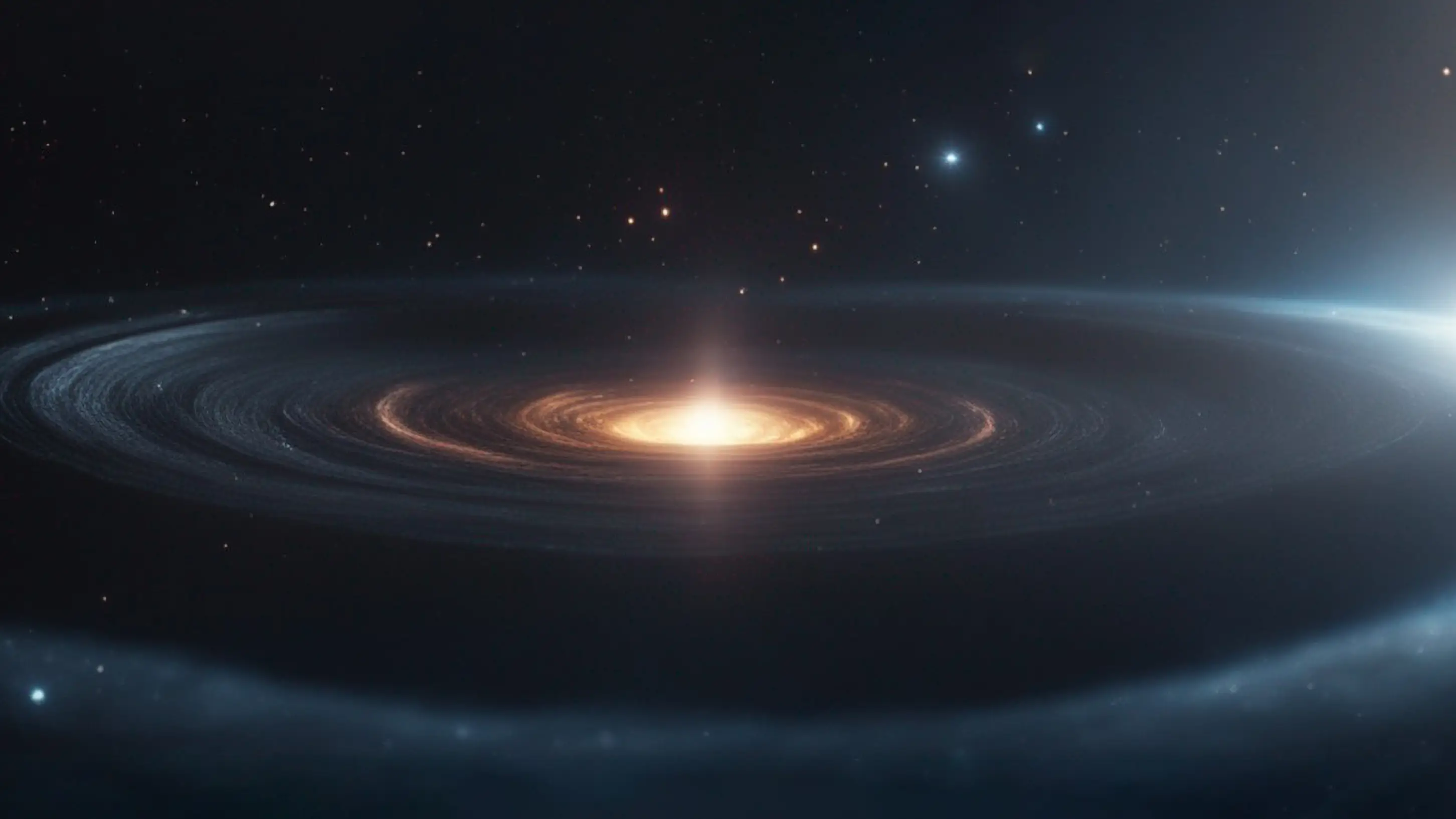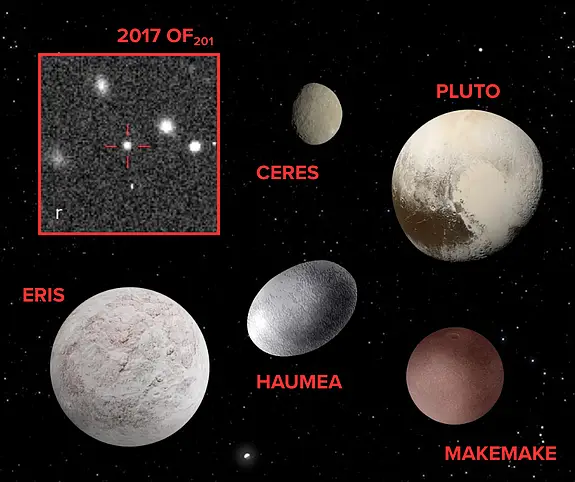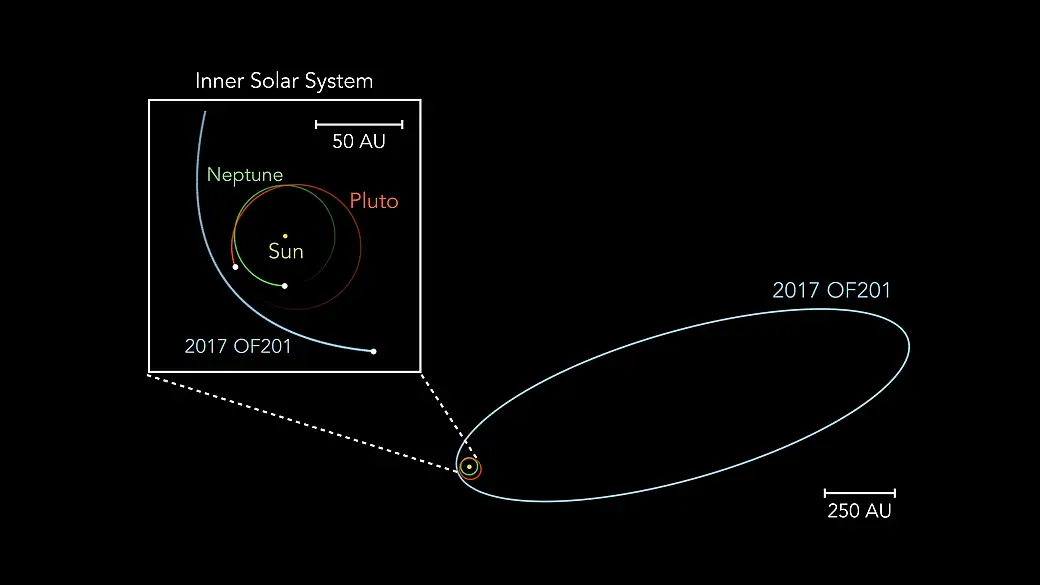
Astronomers have just discovered a new celestial body in our solar system that could challenge major space theory.
2017 OF201 is the name of a trans-Neptunian object (TNO) which has been found floating around in our galaxy far, far away.
The International Astronomical Union’s Minor Planet Center announced on 21 May 2025 that the dwarf planet candidate is 'currently located at a distance of 90.5 au' from Earth.
To put that into perspective, 1 au is equivalent of 93 million miles in space terms.
Advert
But given that 2017 OF201 orbits the Sun further away than Neptune, it takes about 25,000 years to go all the way around.
"Assuming a typical albedo of 0.15, we estimate a diameter about 700 km, making it the second-largest known object in this dynamical population and a likely dwarf planet," authors Sihao Cheng, Martin A. and Helen Chooljian wrote.

To demonstrate just how rare of a find it is, Cheng, the discovery team leader, noted that the dwarf planet candidate 'spends only 1 percent of its orbital time close enough to us to be detectable'.
"The presence of this single object suggests that there could be another hundred or so other objects with similar orbit and size; they are just too far away to be detectable now," he said.
"Even though advances in telescopes have enabled us to explore distant parts of the universe, there is still a great deal to discover about our own Solar System."
Cheng added: "The object’s aphelion – the farthest point on the orbit from the Sun – is more than 1,600 times that of the Earth’s orbit.
"Meanwhile, its perihelion – the closest point on its orbit to the Sun – is 44.5 times that of the Earth’s orbit, similar to Pluto's orbit."

Co-discoverer Jiaxuan Li, from Princeton University, explained that they were able to discover the celestial body by using data which is 'available to anyone'.
"All the data we used to identify and characterise this object are archival data that are available to anyone, not only professional astronomers," Li said.
"This means that groundbreaking discoveries aren't limited to those with access to the world's largest telescopes.
"Any researcher, student, or even citizen scientist with the right tools and knowledge could have made this discovery, highlighting the value of sharing scientific resources."
So for now, a total of five dwarf planets have been recognised by the International Astronomical Union, and 2017 OF201 could yet join that list.
"Notably, the orbit of 2017 OF201 lies well outside the clustering of longitude of perihelion observed in extreme trans-Neptunian objects, which has been proposed as dynamical evidence for a distant, undetected planet," the authors added.
"Its high eccentricity suggests that it is part of a broader, unseen population of similar objects totaling about 1 percent of Earth's mass."